




| Whiskered Tern (Chlidonias hybrida (Pallas, 1811)) |





|
|
Scientific name: Chlidonias hybrida (Pallas, 1811) Common name: Whiskered Tern French name: Guifette moustac Order: Charadriiformes Family: Laridae Size: Body size: 24 to 29 cm; Weight: 80 to 95 g; Wingspan: 64 to 70 cm. Habitat: Freshwater marshes, ponds and pools with emergent vegetation and movements to lakes, lagoons and coastal estuaries outside the breeding season. Food: Aquatic insects and their larvae, dragonflies and beetles, small amphibians and small fish. Nesting: The nest is a floating platform of aquatic plants. There are 3 to 5 eggs per clutch. Migration: Birds from southwestern Europe winter in West Africa. Birds from central Europe winter in East Africa and India. A small number of birds winter around the Mediterranean sea. Geographic area: There are 3 subspecies. The Chlidonias hybrida hybrida subspecies breeds scattered in the temperate zones of Western Europe, Central Europe east to Kazakhstan and in North Africa. The Chlidonias hybrida delalandii subspecies breeds in East Africa. The Chlidonias hybrida javanicus subspecies breeds in Australia. |
In breeding plumage the Whiskered Tern has a black crown from the top of the bill to the bottom of the back of the neck, white cheeks and sides of the neck. The rest of the body is grey, darker on the underside. The bill, short and thick, is brick red in colour like the legs. In non-breeding plumage the top of the head becomes white with fine black stripes on the back of the crown and a black spot behind the eye. The bill becomes blackish and the body is less dark on the underside. In breeding plumage the Black Tern (Chlidonias niger) has a black bill and does not have white cheeks. The Common Tern (Sterna hirundo) is larger, has white underparts and a red bill ending in a black tip. |
| [To know more about the Whiskered Tern] [Next picture] [Top] |
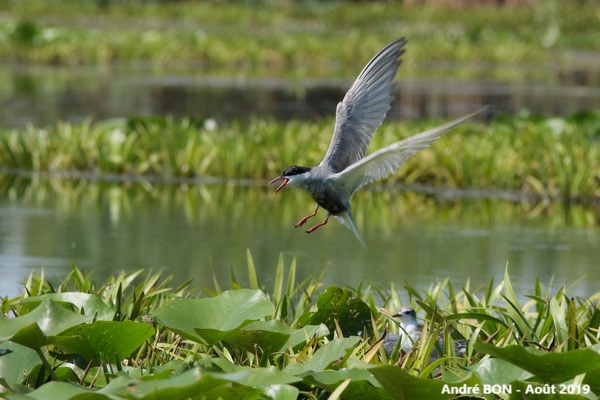
|
Our boat approached (perhaps a little too close for my liking) a nesting site of Whiskered Tern. Here we see an adult in breeding plumage that seems to be trying to defend its territory. |
| [To know more about the Whiskered Tern] [Next picture] [Previous picture] [Top] |
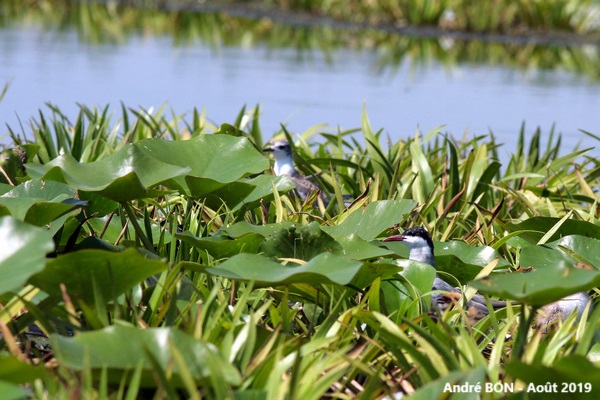
|
Adult and juveniles in the nesting area. |
| [To know more about the Whiskered Tern] [Next picture] [Previous picture] [Top] |
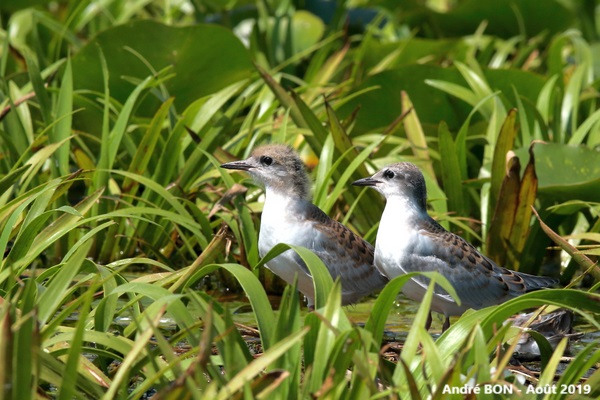
|
The boat circled the colony, scaring away the adults and allowing us to see the juveniles. |
| [To know more about the Whiskered Tern] [Next picture] [Previous picture] [Top] |
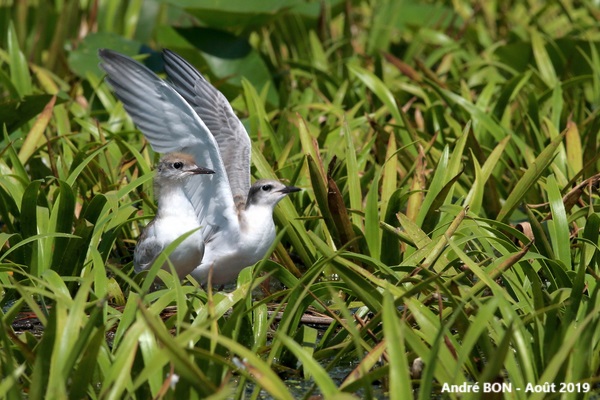
|
I will soon be able to fly like my parents and I will go to winter in East Africa. |
| [To know more about the Whiskered Tern] [Previous picture] [Top] |
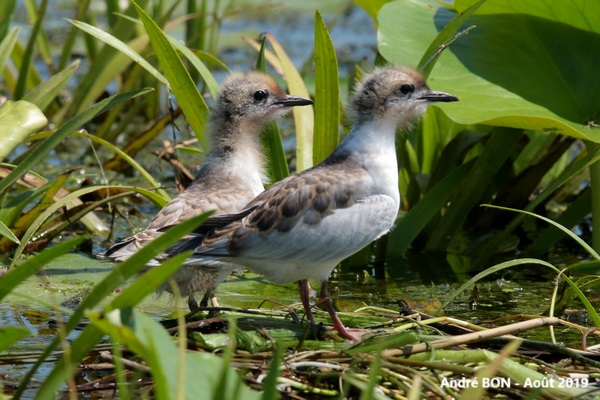
|
One last photo before joining a channel more suited to the size of the boat. |